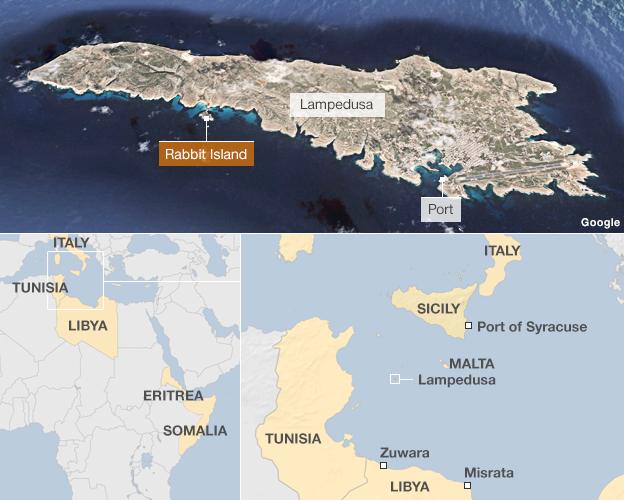Italy sinking: Bad weather hampers search for migrants
- Published
A man from Eritrea is rescued: "You have to search or 480 people are going to die"
Rough seas forced divers to postpone their search for more than 200 migrants still unaccounted for after their boat sank off southern Italy.
Rescuers have so far found 111 bodies, and 155 people have been pulled alive from the seas 1km (half a mile) from the island of Lampedusa.
Video footage showed the boat lying upright on the seabed some 150ft (45m) below the surface.
Divers have described seeing horrific scenes inside the wreckage.
So many bodies have been brought ashore that the island has had to send for more coffins and turn a hangar at the airport into a huge makeshift mortuary.
Italians are aghast at the scale of the tragedy that unfolded on Thursday, Italy's worst ever migrant shipwreck, the BBC's Alan Johnston says.
A day of mourning was declared on Friday, with flags flying at half-mast and a minute of silence observed in all Italian schools.
An evening mass and silent candlelit procession was held on Lampedusa. Most residents of the island turned out, the BBC's Gavin Hewitt reports from the scene.
People are sombre, but also angry that such tragedies are happening all too often and so little is being done to prevent them, he adds.
Pope Francis, visiting Assisi, described Friday as "a day of tears" for the victims and condemned a "savage world" that ignores the plight of "people who have to flee poverty and hunger".
He has said he wants to use abandoned Catholic monasteries and convents to house refugees.
Key migrant routes to southern Europe
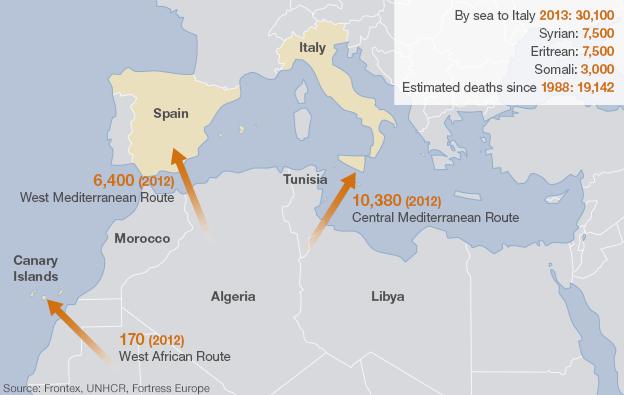
Lampedusa Mayor Giusi Nicolini - who wept at the scene - said: "After these deaths, we are expecting something to change. Things cannot stay the same.
"The future of Lampedusa is directly linked to policies on immigration and asylum."
Libya is attractive for migrants wanting to travel on to Europe, says the BBC's Rana Jawad
Interior Minister Angelino Alfano said: "This is not an Italian tragedy, this is a European tragedy. Lampedusa has to be considered the frontier of Europe, not the frontier of Italy."
Italian coastguard ships, fishing boats and helicopters have been taking part in the rescue and recovery operation off an area of Lampedusa called Rabbit Island.
The search has been widened beyond the initial radius of four nautical miles in an effort to recover bodies that have been swept away by tides.
But the worsening weather conditions put the operation on hold during the afternoon.
Gavin Hewitt says that at least 200 migrants are still unaccounted for
Mr Alfano said the divers had seen dozens of bodies in the wreck. "There could be even more in the hold, where the poorest of the poor are usually put," he told parliament.
Half of the bodies so far recovered are said to be women and four are children.
The skipper of the boat, a 35-year-old Tunisian, was arrested, Mr Alfano announced on a visit to Lampedusa on Thursday. "He had been deported from Italy in April," he said.
The 66ft (20m) ship was carrying about 500 migrants - mostly from Eritrea and Somalia - when it set sail from the Libyan port of Misrata, survivors said.
The boat began taking on water when its motor stopped working as it neared Lampedusa early on Thursday morning, they said.
Some of those on board then reportedly set fire to a piece of material to try to attract the attention of passing ships, only to have the fire spread to the rest of the boat.
The boat is thought to have capsized when everyone moved to one side.
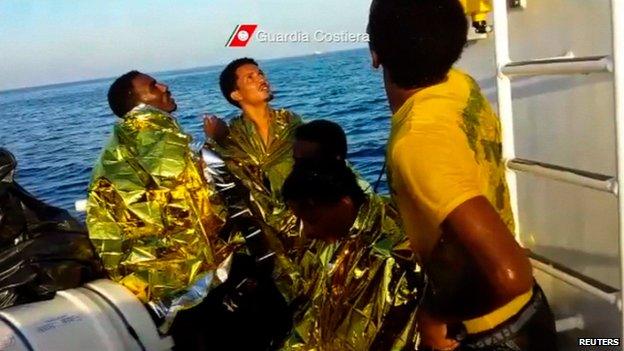
This image released by the Italian coastguard shows some of the migrants who survived the shipwreck.
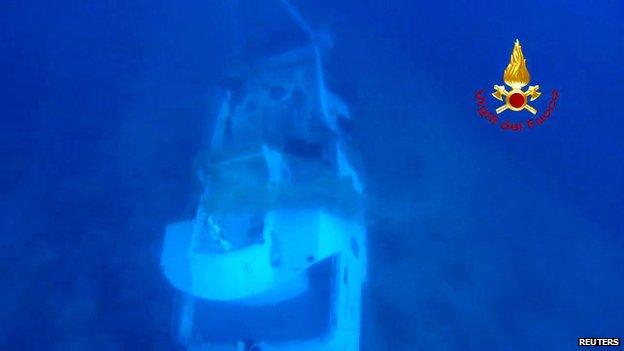
But their boat lies at the bottom of the sea, along with many bodies of those who did not survive the disaster.
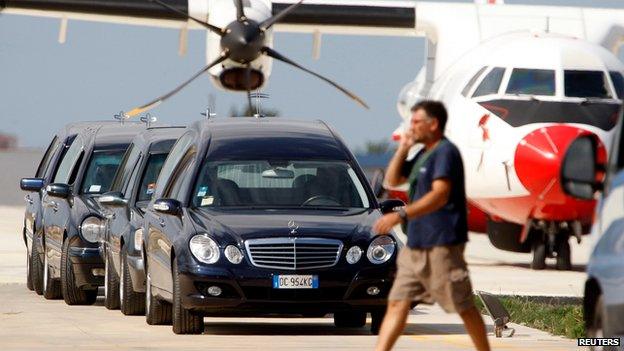
The scale of the tragedy meant a hangar at Lampedusa's airport has had to be turned into a temporary mortuary and more coffins brought on to the island.
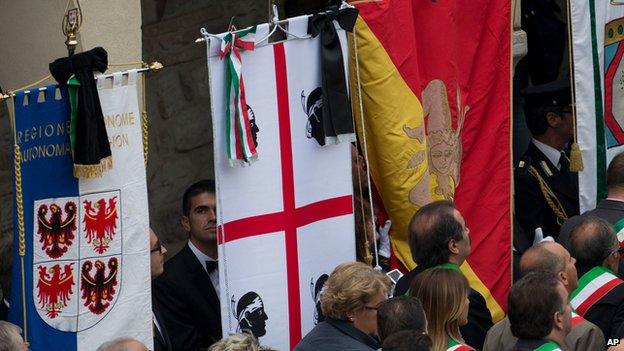
Black ribbons in memory of those who died were tied to banners during a mass by Pope Francis in front of St Francis Basilica in Assisi.
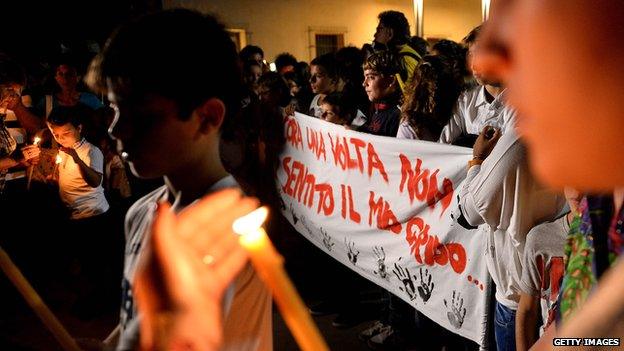
Residents of Lampedusa held a candlelit procession through the streets of the island. One banner read: "Once again you didn't hear me crying."
Footage from Lampedusa showed bodies being laid out on the dockside.
Mayor Nicolini has described the scene as a "continuous horror", while a local doctor said the hardest part to deal with was seeing the bodies of children.
An Eritrean woman who had initially been placed among the bodies on the shore was later found to be breathing and was taken to hospital in Sicily.
In a statement, UN High Commissioner for Refugees Antonio Guterres commended the swift action taken by the Italian coastguard to save lives.
Mr Guterres also expressed "dismay at the rising global phenomenon of migrants and people fleeing conflict or persecution and perishing at sea".
The UN said that in recent months, most migrants attempting the crossing were fleeing the conflicts in Syria and the Horn of Africa rather than coming from sub-Saharan Africa.
The number of those arriving by sea to Italy this year until 30 September stood at 30,100, according to the UN.
The main nationalities of those arriving were Syrian (7,500), Eritrean (7,500) and Somali (3,000).
